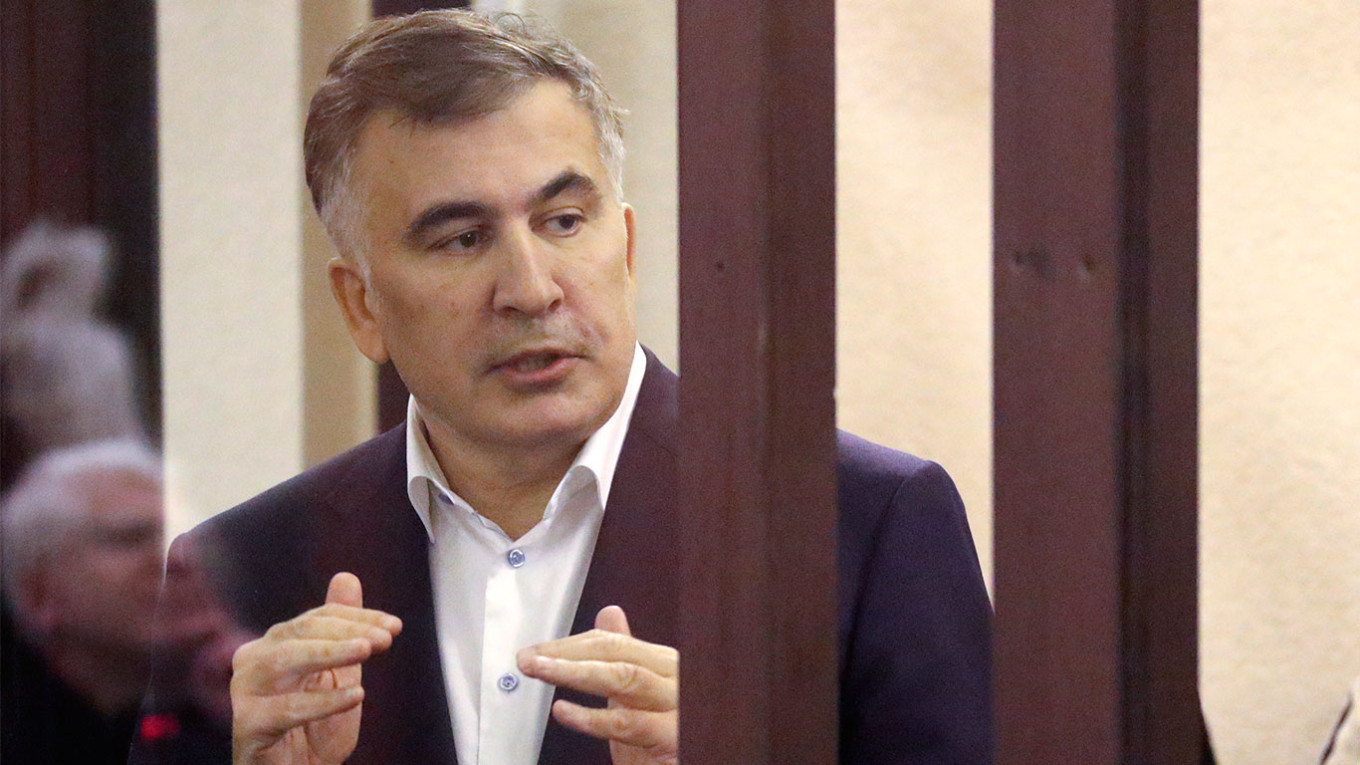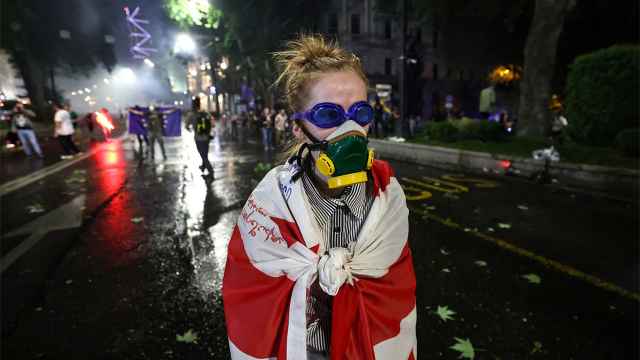Georgia's jailed ex-president, Mikheil Saakashvili, has been "poisoned" in custody by heavy metals and risks dying without proper treatment, according to a medical report distributed on Monday by his legal team.
The 54-year-old was transferred to the hospital last year after a hunger strike that he maintained for 50 days to protest at his jailing, which rights groups have denounced as politically motivated.
In a report distributed by Saakashvili's legal team, U.S.-based toxicologist David Smith said "testing has revealed the presence of heavy metals" in Saakashvili's body and the pathological symptoms he displays "are the result of heavy metal poisoning."
"To a reasonable degree of medical certainty" the toxic agents, including mercury and arsenic, were introduced after Saakashvili was jailed, Smith said.
The authors of the report, dated Nov. 28, also said Saakashvili was being administered damaging medication without proper oversight.
The "increased risk of mortality is imminent" without adequate treatment, "which appears to have been denied or unavailable" in Georgia, Smith added.
Georgian authorities have insisted that Saakashvili is being given adequate medical care.
Another independent doctor, Mariam Jishkariani, who headed a council of medics that had examined Saakashvili, told AFP on Monday he has been "diagnosed with brain damage and neuro-intoxication."
"He is suffering from a number of serious illnesses, which are incompatible with his confinement, according to Georgian law."
Tengiz Tsuladze, a doctor from a council of medics set up by Georgia's rights ombudsperson, said Saakashvili "has lost more than 40 kilograms (88 pounds) since his detention."
"Georgia's medical system has apparently exhausted all the available means for Saakashvili's treatment," he told the independent Formula TV station on Sunday.
Saakashvili, the founder of Georgia's main opposition force and president of the small Caucasian nation from 2004 to 2013, was convicted in absentia on charges of abuse of office and sentenced to six years in prison in 2018.
The pro-Western reformer was imprisoned in October 2021, days after secretly returning from exile in Ukraine.
He has denounced his conviction as politically motivated.
In October, the Council of Europe rights watchdog called for the "release of political prisoners opposed to (Russian President Vladimir) Putin in the Russian Federation and other countries, including Mikheil Saakashvili."
Amnesty International has branded his treatment as "apparent political revenge."
A Message from The Moscow Times:
Dear readers,
We are facing unprecedented challenges. Russia's Prosecutor General's Office has designated The Moscow Times as an "undesirable" organization, criminalizing our work and putting our staff at risk of prosecution. This follows our earlier unjust labeling as a "foreign agent."
These actions are direct attempts to silence independent journalism in Russia. The authorities claim our work "discredits the decisions of the Russian leadership." We see things differently: we strive to provide accurate, unbiased reporting on Russia.
We, the journalists of The Moscow Times, refuse to be silenced. But to continue our work, we need your help.
Your support, no matter how small, makes a world of difference. If you can, please support us monthly starting from just $2. It's quick to set up, and every contribution makes a significant impact.
By supporting The Moscow Times, you're defending open, independent journalism in the face of repression. Thank you for standing with us.
Remind me later.






